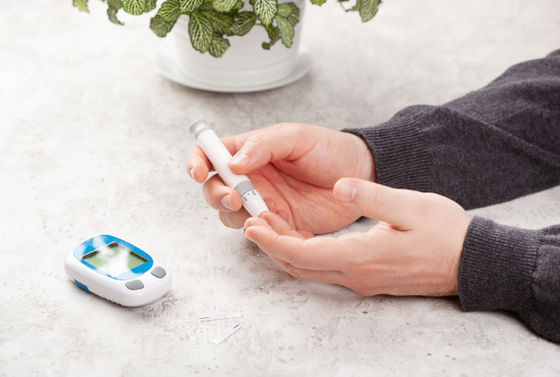Research shows that sleeping less than 6 hours increases the risk of type 2 diabetes, why does lack of sleep cause diabetes?

The first things that come to mind as causes of type 2 diabetes are lack of exercise and overeating. However, new research has shown that sleeping less than six hours a day increases the risk of type 2 diabetes.
Habitual Short Sleep Duration, Diet, and Development of Type 2 Diabetes in Adults | Diabetes and Endocrinology | JAMA Network Open | JAMA Network
https://jamanetwork.com/journals/jamanetworkopen/fullarticle/2815684
Could you not get enough sleep? Increase your risk of type 2 diabetes?
https://theconversation.com/could-not-getting-enough-sleep-increase-your-risk-of-type-2-diabetes-225179
The original research
In a study published in the American Medical Association's medical journal JAMA Network Open in March 2024, a research team led by Christian Benedict of Uppsala University in Sweden analyzed data from a survey that tracked the health of 247,867 adults registered with the UK Biobank for more than 10 years.
The results confirmed that a balanced diet reduces the risk of overall health problems, but also found that sleeping less than six hours a night increases the risk of type 2 diabetes, even if you eat a healthy diet.
Specifically, people who slept five to six hours a night had a 16% higher risk of developing type 2 diabetes than those who slept seven to eight hours a night, and those who slept three to four hours a night had a 41% higher risk.

◆Why does short sleep time increase the risk of diabetes?
Juliana Murphet, chair of Diabetes Australia's medical, educational and scientific advisory committee, said the exact mechanism by which short sleep increases the risk of type 2 diabetes was unknown.
However, there are two main possible causes. The first is that lack of sleep inhibits the action of insulin, a hormone that regulates blood sugar levels.
Previous research has shown that people who sleep less have higher levels of inflammatory markers in the blood and

The second is a disruption of the body clock. People who don't get enough sleep or have irregular sleep patterns, such as those who work shifts, disrupt the body's natural rhythm, known as
This may hinder the secretion of various hormones that regulate sugar metabolism in the body, such as cortisol , glucagon , and growth hormone, which may reduce the body's ability to process the glucose ingested throughout the day.
◆How can you minimize the effects of lack of sleep?
Benedict and his colleagues acknowledge that getting enough sleep is difficult for many people, and they point out that it's important for those people to find ways to reduce their risk of type 2 diabetes as much as possible.
In fact, the study suggests that engaging in high-intensity interval exercise during the day may help offset some of the increased diabetes risk associated with sleep deprivation.

While lack of sleep is often seen as a problem, past research has shown that sleeping more than eight hours a night can also increase the risk of type 2 diabetes through weight gain.
Based on these points, Murfet et al. concluded that 'the sweet spot for sleep duration in terms of diabetes risk appears to be 7 to 8 hours. It is also possible that other factors, such as sleep quality and individual differences in lifestyle, may influence the relationship between sleep duration and diabetes risk.'
Related Posts:
in Science, Posted by log1l_ks







